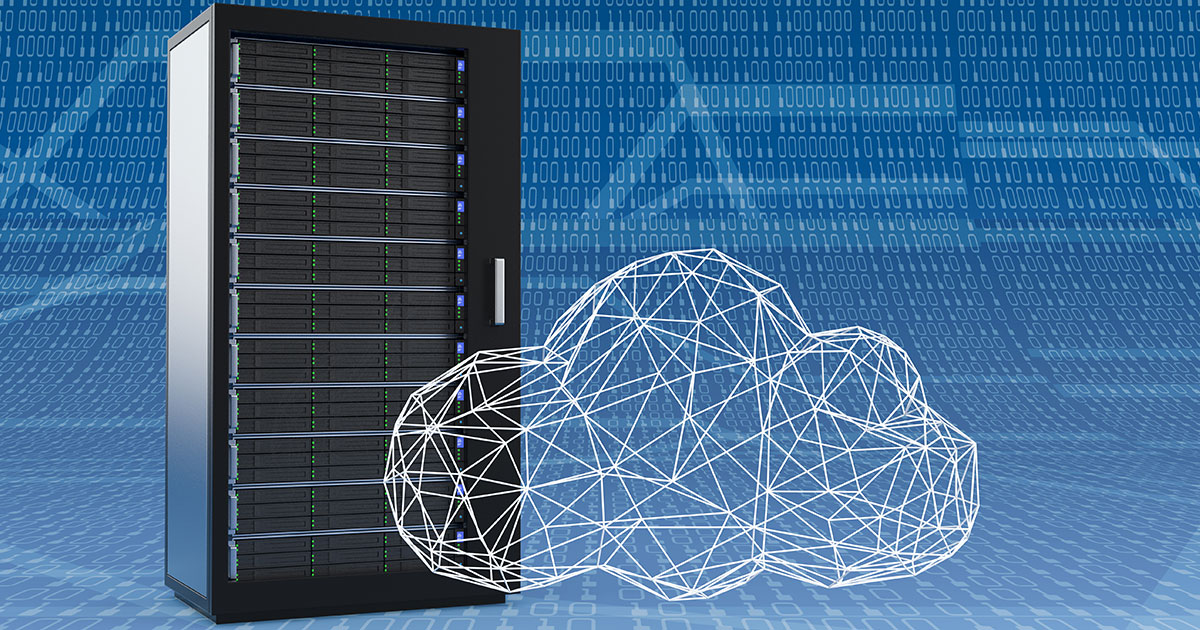What are cloud services?
Cloud services are a secure, low-cost and practical way of accessing infrastructure or software via a third party. Businesses in particular often benefit from using cloud infrastructure and services. Such services include IaaS, PaaS, SaaS, FaaS and XaaS.
Why are cloud services useful?
Modern software undoubtedly makes our lives easier, but it often takes up a large amount of memory. Because of this and for security reasons, it often means that other solutions are needed. With cloud services, external providers can offer you access to infrastructure, platforms, software or individual functions regardless of the device you are using.
These services use the internet or a VPN (virtual private network) to provide you with the resources you need. This is made possible by large servers which, on the one hand, can handle the flow of user data and, on the other, make the data available in a timely manner. With cloud services, you no longer need to rely on local storage.
What are the benefits of cloud services?
Users can gain many benefits from using cloud services. Among these are:
Fewer resources
Cloud services can provide comprehensive structures, which would be difficult or impossible for businesses or individuals to set up themselves. They also make large data sets and flows available at all times without the need for on-site resources. Since no additional hardware is needed, there are unlimited ways to get more storage space.
Cost savings
Cloud services also come with huge cost savings. In the absence of cloud services, you would need to buy and store additional hardware and software for all your needs. By using such services, you can easily manage load peaks. Cloud service users only pay for the resources they actually need and use, meaning there’s no need to invest in anything extra.
Flexibility
Cloud services are also flexible. They can be used on an as-needed basis. During peak times, additional capacity can be added to offset extra loads. As soon as they are no longer needed, you can in most cases simply get rid of them. This not only saves you money, it also provides you with the security of knowing that you have resources available if there are any unexpected developments.
Security
With cloud services comes cloud access security. Not having the hardware in your possession significantly reduces the risk of it being stolen or damaged. Additionally, all servers have numerous security features to prevent unauthorised access, data loss and malware attacks. Strong security, regular backups and continuous checks ensure that cloud services and your data are well protected.
What cloud services are available?
Within the realm of cloud services, the as-a-service model is very popular. While the general aim is to make infrastructure, technologies, platforms or software available to users, there are differences between IaaS, PaaS, SaaS, FaaS and Xaas. Below, we’ll take a closer look at these different cloud services:
IaaS
IaaS (infrastructure as a service). Users can access an IT infrastructure that is made available via the internet. This infrastructure can be storage, servers or network resources that are made available using virtual machines.
IaaS is a very widespread cloud service model and can be used by both businesses and individuals. By using IaaS you can avoid buying, storing and maintaining your own hardware. Anyone authorised to do so can access the data, which is protected by multiple security systems.
PaaS
PaaS (platform as a service). This type of cloud service is primarily used to develop web-based applications. Dev and programming teams as well as individuals who want to make their own apps use this type of service to program, test and manage applications. The service offers access to the hardware and software required for building applications and in doing so helps app creators save on costs and resources.
SaaS
SaaS (software as a service). SaaS users have access to programs and software collections. By accessing them via cloud services, users don’t have to buy and install them separately. These types of service are often used in customer relationship management (CRM), human resources management (HRM) and data management.
FaaS
FaaS (function as a service). This type of cloud service is used for development. FaaS providers make function packages available, which can then be purchased. Popular functions and functions that require a lot of computing power can be stored externally and used without limitations.
XaaS
XaaS (anything as a service). This collective term covers cloud services that follow a similar principle to the other categories without fitting into any of them in particular. Various recovery, communication and monitoring services belong to the XaaS category.
What types of clouds are available?
There are different types of clouds available. These can be organised into different delivery models:
Public cloud
Public cloud services offer access to different computing resources using the public internet. To access the public cloud, users only need an internet-capable device.
Private cloud
While the public cloud is available to everyone, a private cloud is only available to a limited number of people. This type of cloud is, for example, used within a company and made available via the internet or a private network.
Hybrid cloud
A hybrid cloud is a mix of the public cloud and a private cloud or internal data center. This means data can be stored in different places depending on where it’s needed and how sensitive it is. A hybrid cloud combines different storage solutions, allowing it to be used seamlessly.
Multicloud
A multicloud is a combination of different cloud services that can be connected with each other or function independently of each other. In a multicloud architecture, at least two clouds are used. This can include multiple clouds of the same type or a combination of different types (e.g., public and private) of clouds.
Get complete control of your data: with a private cloud from IONOS you can benefit from a secure solution for internal data storage. Choose the option that best fits your needs.









